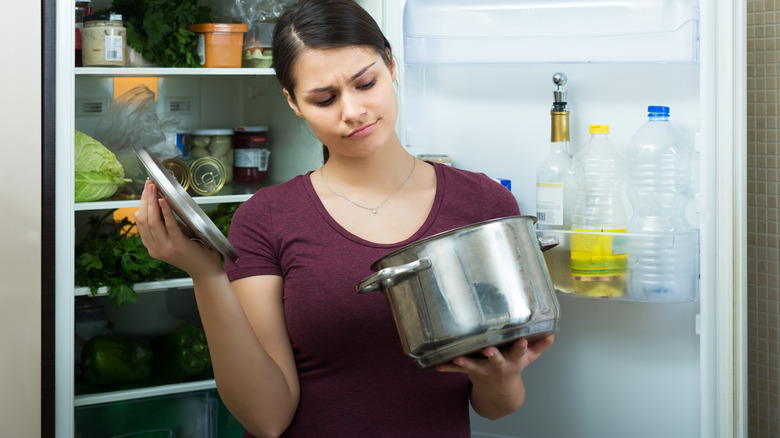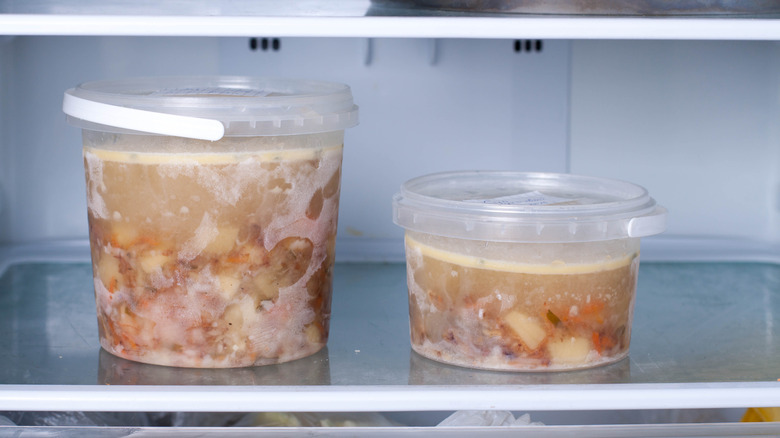Here's How Long You Can Keep Soup In The Fridge Before Tossing It
Overestimating how much soup to make can easily result in a large batch that can't be finished in one meal. But having extra can be a good thing. Soup is easy to reheat (or even revamp with new ingredients) providing a hassle-free meal option. However, proper refrigeration is essential to enjoy your soup for a second time safely. While it may still look and smell fine the next day, leaving soup out overnight is risky. Even during colder months when your kitchen might be chillier than normal, soup that is not refrigerated properly can become a breeding ground for harmful bacteria.
It's important to note that refrigeration may not prolong the shelf life of soup as much as you might think. While it can last two to three months when properly frozen, the time frame is much shorter when stored in the fridge. You only have three to four days before your soup will no longer be safe to eat. At that point, it's best to toss it to avoid any health risks.
The most effective way to store soup in the fridge
As soon as you know you'll have leftover soup, plan to put it in the refrigerator right away. Contrary to popular belief, you do not need to let soup cool at room temperature beforehand, in fact, this will shorten the shelf life of your soup. This is because the longer food is left in the "danger zone," which refers to temperatures between 40 and 140 degrees Fahrenheit, the higher the risk of harmful bacteria growth. This temperature range creates an environment where bacteria thrive and multiply, leading to quicker spoilage.
Instead of refrigerating the whole pot or transferring the soup into a large container, separate it into smaller, shallow containers. This will allow the soup to cool much faster, thus minimizing the time it spends in the danger zone. It's important to complete this process within two hours, or one if the soup is left in an environment where temperatures exceed 90 degrees Fahrenheit, such as at a summer barbecue or in a lunchbox inside a warm car.
Can you prolong the shelf life of soup?
Refrigerating soup doesn't prevent bacteria from forming; it simply slows down the growth. However, the rate at which bacteria grow can also be influenced by the ingredients in your soup. For instance, soups containing dairy and meat are more prone to spoiling quickly. In contrast, vegetable soups, especially those with acidic ingredients like tomatoes or lemon juice, tend to last longer. You may be able to stretch the soup's shelf life to one more day, however, you should still be mindful of signs of spoilage.
The most obvious indicators of spoilage include changes in smell and texture. Do not attempt to taste it to determine whether it's gone bad or not, and instead look for indicators like sliminess or a sour odor. Sometimes you'll see mold, but it's also common to see bubbles, which are a result of bacteria-induced fermentation. These are all signs that your soup is no longer safe to eat and you should just throw it away.


